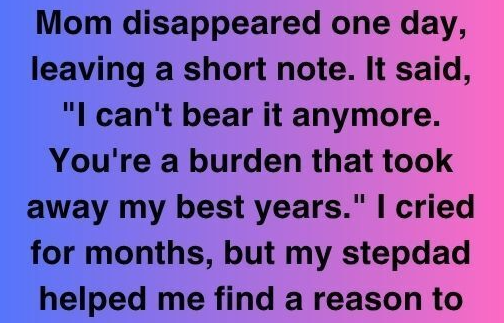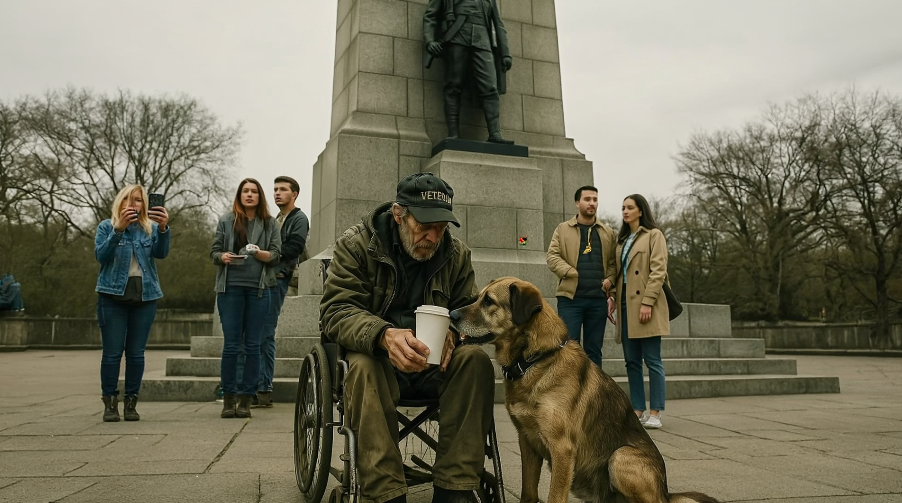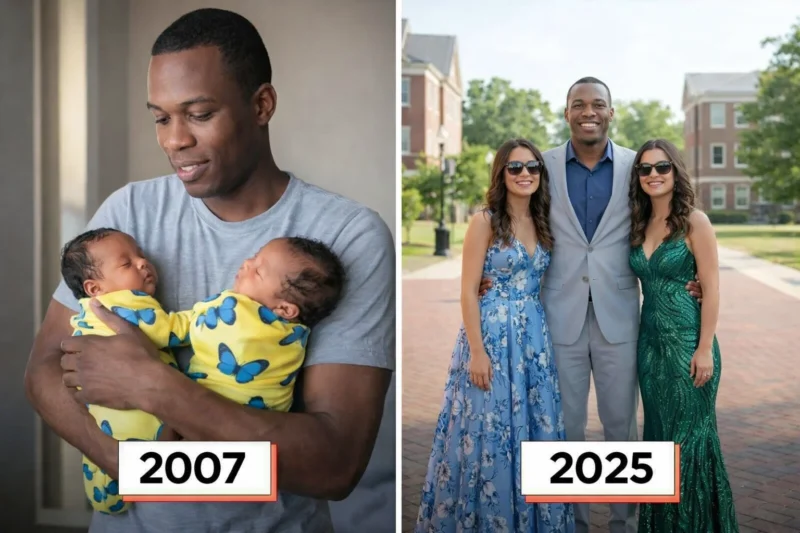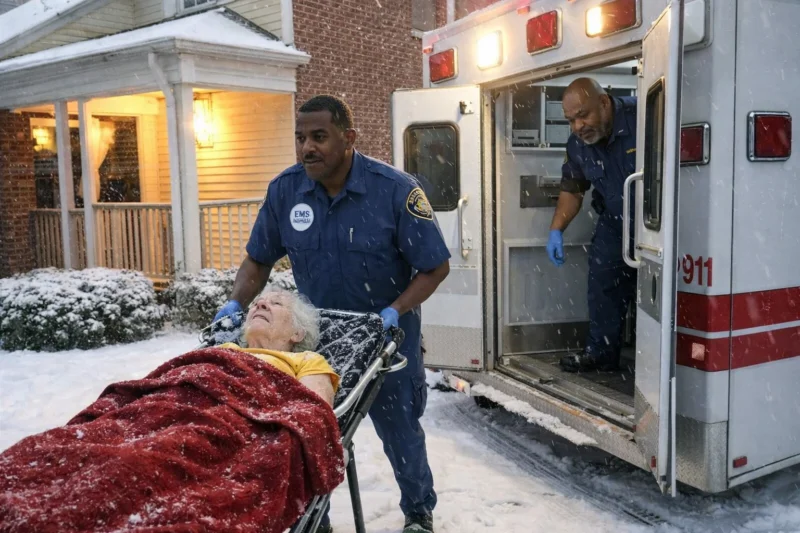One morning, Mom vanished, leaving behind a brief note. It read, “I can’t handle this anymore. You’re a weight that stole my prime years.” I wept for weeks, but my stepdad, Mark, guided me toward a purpose to keep going. Two decades later, Mom reappeared as if time hadn’t passed, declaring with confidence that I owed her for my existence.
I stood there, stunned, staring at her. She looked different—lines etched around her eyes, hair dyed a shade that didn’t match the mother I remembered, and clothes that seemed too lavish for her old self. Yet her voice, sharp and commanding, remained unchanged.
“You heard what I said,” she stated, crossing her arms. “I gave you life. You owe me.”
I blinked, torn between laughter, anger, and tears. Mark was in the kitchen, likely hearing every word but giving me space, as he always did.
“Where were you all this time?” I asked, my voice trembling.
“I needed to discover who I was,” she replied, shrugging. “You were overwhelming me. I had to leave to find my own way.”
Words escaped me. I was only nine when she left. No goodbye, no embrace—just a cold note left on the kitchen counter.
Mark found me that day, curled up with my stuffed dog, clutching that note. He never demanded anything. He lifted me up, reminded me I was enough, and stayed when leaving would’ve been simpler.
Mom sipped from a coffee mug she’d grabbed from the counter.
“You seem to be doing well,” she said, glancing around. “You went to college, got a job, a house. I must’ve done something good.”
“You didn’t do anything,” I replied, shaking my head. “Mark raised me. He stayed up through my panic attacks. He worked double shifts to pay for my therapy. He made sure I had meals and found reasons to smile.”
She scoffed, dismissing my words. “But I’m the one who brought you here.”
“That doesn’t mean you can return after twenty years and demand payment,” I said, sensing her true intentions.
Her eyes scanned the house, calculating. “You’ve got a nice life. Helping me out wouldn’t be a big deal. I’m your mother.”
Silence hung heavy. I walked to the living room window, watching Mark water the garden, humming a tune. He didn’t look back.
“I think it’s time for you to go,” I said, turning to face her.
Her expression hardened. “That’s how you treat your own mother?”
“No. That’s how I treat someone who abandoned me and came back years later expecting a reward.”
She stood, hesitating as if she had more to say, but left without another word. The door clicked shut behind her.
I didn’t cry. I didn’t feel relieved. Just an odd emptiness lingered.
Mark came in shortly after, wiping his hands on a towel. He looked at me and said gently, “So… she came back?”
I nodded.
“You holding up okay?”
I stepped forward and hugged him. “I think so. Seeing her made me realize I already have everything I need.”
He patted my back. “You’ve come far, kiddo.”
The encounter stayed with me for days. I wondered if I should’ve been firmer or more compassionate. But then I remembered her note and the way she looked at me as she walked away from her nine-year-old daughter.
Two weeks later, a letter arrived. Her handwriting, messy and rushed, filled the page.
It read:
“You’ve grown so distant. I raised you for nine years, and you act like that means nothing. If you had any heart, you’d help me now when I’m struggling. I sacrificed everything for you. You owe me.”
I didn’t reply. I tucked the letter in a drawer—not for nostalgia, but as a reminder of my strength.
I never told Mark about it. He’d carried enough. He didn’t need to revisit the pain caused by the woman who hurt us both.
Instead, I poured my energy into the life I’d created.
I worked at a nonprofit supporting kids in foster care, perhaps as a way to give back or to reshape my own story for others. One day, I met Lenny, a teenager with a sharp wit and deep mistrust, much like I once was.
He’d been shuffled through foster homes, never feeling secure or valued.
Mark offered him weekend gardening work, something steady to hold onto. They bonded in an unexpected way—Lenny’s sarcastic remarks met with Mark’s hearty laughter.
“He needs someone to be there,” Mark told me one day. “That’s all it takes.”
I understood completely.
Over time, Lenny became part of our family. He joined us for dinners, helped repair the porch, and enrolled in a school art program.
One night, watching a cheesy cooking show, Lenny said, “This is the longest I’ve stayed anywhere.”
Mark grinned, passing him the popcorn. “That’s because no one here’s giving up on you.”
Something stirred in me.
Later, I reread Mom’s letter. It hit me—she didn’t shape who I was. She didn’t get to claim my life as her achievement.
A year later, I saw her name in the news. She’d been arrested for fraud, deceiving people into giving her money by pretending to be someone else.
The article listed her aliases and lies. One sentence stood out: “A woman who discarded her past, only to wield it when it suited her.”
I closed the article and sat quietly.
Part of me hoped she’d change, maybe even regret her choices. But that wasn’t her story.
And that was okay.
One day, Lenny asked, “Do you ever think about your real mom?”
I paused. “Sometimes. But I don’t see her as my real mom anymore.”
He looked curious. “What does that mean?”
I smiled. “A real parent isn’t the one who gives you life. It’s the one who stays, who teaches you to change a tire, who listens when you’re falling apart, who shows up no matter what.”
He nodded, processing my words.
“Could I be a parent like that?” he asked.
“You already are,” I said. “You look out for your little sister every time you visit. That’s more than many do.”
Families aren’t always born—they’re often built from the fragments we’re given.
Months later, Lenny earned a scholarship to an art college. Mark and I attended his first solo exhibition.
At the center was a painting of a cracked ceramic bowl, its fractures filled with gold.
“It’s called ‘Kintsugi,’” Lenny explained. “The Japanese art of mending broken things with gold.”
“It’s stunning,” I said.
“It’s about how damage isn’t the end of the story,” he added.
I glanced at Mark, his eyes glistening.
Sometimes, healing reveals itself in vivid colors and careful brushstrokes.
A year later, I got married in a simple backyard ceremony. Lenny crafted the centerpieces, and Mark walked me down the aisle.
No drama, only quiet happiness.
At the reception, Mark raised his glass. “I didn’t plan to be a dad. Life gave me the opportunity, and I’m grateful every day that I took it.”
For the first time in years, I cried over Mom—not for her actions, but because I realized how fortunate I was.
She left a void, but life filled it with someone who chose me, and whom I chose in return.
I heard Mom was now chasing money from a distant relative, still playing her old tricks.
But I’d moved forward.
I didn’t owe her anything.
I owed nothing to those who walk away when things get tough.
What I did owe was gratitude to those who stayed, who lifted me up, who stood by me when I couldn’t stand alone.
That’s where the true value lies.
If you’ve ever felt left behind, know this: you’re not irreparably broken. You’re not a burden. You’re not defined by someone’s failure to love you.
You’re a work in progress, and often, the most beautiful parts of us come from the healing.
So, no, Mom—I don’t owe you a thing.
But to those who loved me when they didn’t have to?
I owe them everything.
If this story resonated with you, consider sharing it. Someone out there might need its message.




